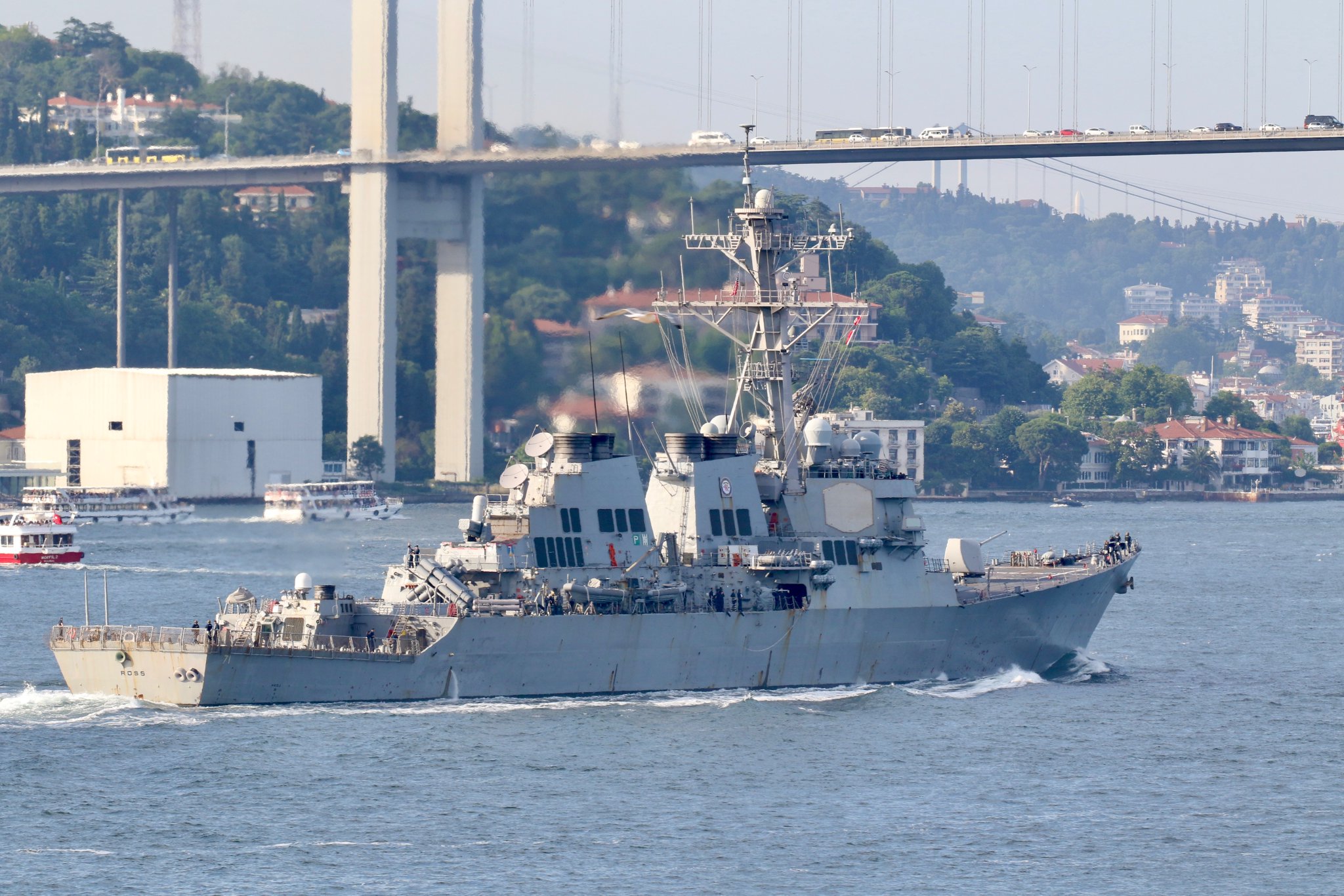
Turkey has no problem holding back approval of Sweden’s and Finland’s applications to join NATO while pursuing its own talks with Russia on opening Ukrainian ports in the Black Sea to allow the shipment of grain overseas, a panel of security experts said Wednesday.
Speaking at an Atlantic Council event, Pavel Popescu, chairman of a key security committee in the Romanian parliament, said, “I see a trap of going into single negotiations” with the Kremlin. Russian President Vladimir Putin did not want Europe and NATO presenting a united front against Moscow’s invasion of Ukraine and bullying of smaller neighbors like Moldova and Georgia, he said.
“Diplomacy died in the Kremlin,” he said. “We didn’t understand that for years.”
So far, the talks over de-mining the waters near Odesa and allowing escorts for merchant vessels taking an estimated more than 20 million tons of grain for export now stored in Ukraine through the Russian blockade have led nowhere.
In the talks in Ankara, Turkey called for an easing of sanctions against Russia. The latest sanctions were imposed in the wake of its Feb. 24 invasion of Ukraine. Moscow pledged at the negotiations not to attack the vessels carrying grain out, but insisted on inspecting vessels coming in to ensure Western weapons weren’t secretly shipping to Ukraine.
At the start of the conflict, Turkey, as is its right under the mid-1930’s Montreux Convention agreement, closed the Dardanelles and Bosporus, the transit points between the Black and Mediterranean seas, to warships.
Jim Townsend, now a senior adjunct fellow at the Center for New American Security, said, “Turkey considers itself the guardian of the Black Sea.”
“Turkey has done this before” in going it alone without consulting the United States or NATO. A recent example of that was Ankara’s decision to buy Russian-made S-400 air defense systems. In response, Turkey was squeezed out of the F-35 Lightning II Joint Strike Fighter program.
Noting that President Recep Tayyip Erdogan is up for election, the former Pentagon official added, he “eventually has to cut a deal” with the United States and NATO.
“’Dear Turkey, we know your issues,’” Popescu said, referring to Turkey’s complaints that the two Nordic countries are providing safe haven to Kurdish terrorists. The three nations met in May to discuss the situation, but did not reach an agreement.
The membership applications will be at the top of NATO’s agenda during its meeting in Madrid later this months. To be accepted, all current members must approve the applications.
Popescu added, “we need to fix this as a priority” by admitting the two to the alliance to limit Russia’s “capacity in this bloody war.”
As the war is now in its fourth month, “I think fraying is normal” in continued unified action, said Catherine Sendak, a former Defense Department official who specialized in the Black Sea region.
“Populations are going to push back” on the impact that war-imposed sanctions on Russia has on them. Townsend and Popescu said this was increasingly true when it comes to energy, both citing Germany and Hungary, which are heavily reliant on Russian imports.
Several times during the event, Popescu said, “we need a coach,” referring to the United States, to say “this is the strategic concept” and you do this, others do that. He added that nations, particularly in the Black Sea region like Romania, are asking “what do we do?” Even before February, Bucharest increased its defense spending in response to earlier Kremlin attacks on neighboring states. For years, it also has been cutting its dependence on Russian natural gas.
Sendak noted that strategies that worked in the Baltic to counter the growing Russian threat in the north do not necessarily apply to nations around the Black Sea. “We’re finally talking about a region we should have been talking about for 10 years.” The question is “what do want to see,” and include Moldova and Georgia in the answer.
Inside the Defense Department, Townsend said more studies are not needed. “Let’s not get hung up on paperwork,” he said. “So many times strategy follows actions.” He said “what’s needed today” to strengthen allies and partners around the Black Sea includes military sales of improved surveillance, intelligence and reconnaissance systems; better maritime awareness and de-mining capabilities; and, if Turkey would allow passage, a NATO naval presence.
“It’s going to take money” to do this on NATO’s southeastern flank and it will be competing for dollars with planned defense spending for the Indo-Pacific.
Sendak said Congress “has the ability to set the tone” through the National Defense Authorization Act, now going through markup in the House Armed Services Committee.
The policy document, which the Senate panel begins markup of next week, can set out goals on security assistance and cooperation and make decisions on platforms.





